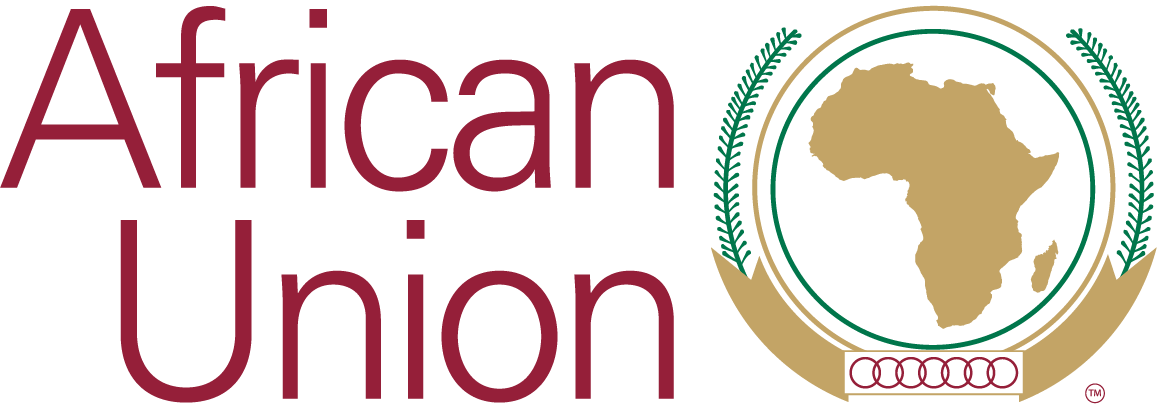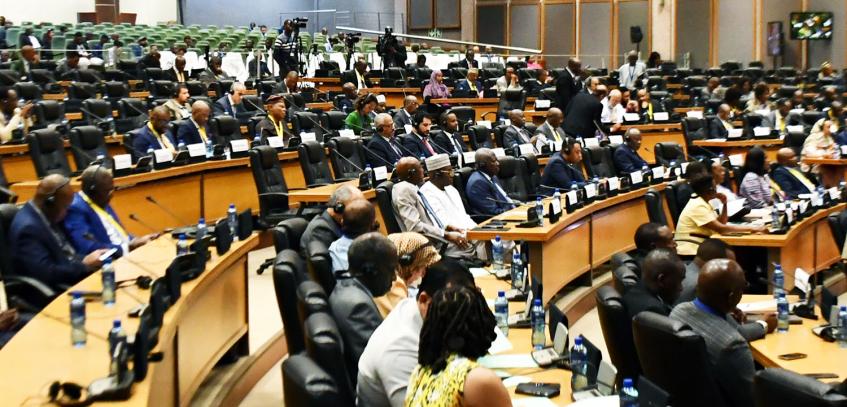As the curtains fell on the 12th Annual Conference of Speakers of African National and Regional Parliaments, held in Midrand, South Africa, the atmosphere was charged with a sense of accomplishment and urgency. The Pan-African Parliament (PAP), alongside its Permanent Committees and other parliamentary bodies, had come together to address some of the continent's most pressing issues. From the devastating floods in Nigeria to the ongoing crisis in Palestine, leaders not only deliberated but issued strong statements of solidarity, committing to collective action.
The conference was a significant moment for Africa’s parliamentary leaders, who had spent days engaged in critical discussions about the continent’s future. These sessions were intense but fruitful, addressing issues from climate change and food security to regional cooperation and peacebuilding.
As the delegates prepared to leave, the mood was one of cautious optimism. South Africa’s Speaker of Parliament, Hon. Thoko Didiza, delivered closing remarks that reflected both the challenges ahead and the resolve to tackle them. Her words captured the spirit of the conference, calling for a modernized and more effective Pan-African Parliament that could truly propel the continent forward.
Hon. Thoko Didiza’s Closing Statement: A Call for Reflection and Action
Standing at the podium, Hon. Thoko Didiza, a former Pan-African Parliament legislator, seasoned leader, and passionate advocate for African unity, delivered a powerful closing speech. Her address was both a reflection on the work done during the conference and a rallying cry for the tasks ahead.
“We must appreciate and applaud the work done by the Pan-African Parliament’s Bureau,” Hon. Didiza stated. “The meetings held by the Speakers of our national and regional parliaments raised critical points that must be considered if we are to truly meet the needs of our people. This conference has made it clear that we urgently need to reconsider the role of the Pan-African Parliament. We need a modernized parliament for our continent to thrive.”
Her words resonated deeply with the delegates. The Pan-African Parliament has long been viewed as a symbol of African unity, but there are growing calls for it to adapt to the modern challenges confronting the continent. From the shifting political landscape to the escalating impacts of climate change, Africa needs strong, dynamic institutions that can deliver tangible results.
Hon. Didiza continued, “We need to engage further and deliberate on how we can strengthen our Regional Economic Communities (RECs). These bodies are the backbone of our continent’s development, and to achieve real progress, we must ensure they are functioning at their highest potential.”
Her statement underscored the necessity of regional cooperation for Africa’s growth. The RECs, including organizations like the Economic Community of West African States (ECOWAS) and the Southern African Development Community (SADC), play crucial roles in promoting trade, security, and development. However, challenges related to coordination, funding, and capacity remain.
Hon. Didiza did not shy away from addressing difficult issues. She emphasized that peace and stability are prerequisites for development. “We need stability and peace across our continent if we are to achieve progress,” she asserted. “Without peace, all our efforts in economic development, social welfare, and climate resilience will be in vain. Africa’s future depends on our ability to resolve conflicts and build lasting peace.”
Her remarks echoed the discussions held throughout the conference. From the armed conflicts in the Sahel to political instability in certain regions, Africa’s leaders recognized that peace and security are vital to unlocking the continent's full potential. The Pan-African Parliament has played an important role in fostering dialogue and advocating for peaceful solutions, but much more remains to be done.
Statement of Solidarity with Nigeria and Flood Victims Across Africa
One of the most impactful moments of the conference was the Statement of Solidarity from the Conference of Speakers of African Parliaments in support of the people of Nigeria and all flood victims across the African continent. The devastating floods in Nigeria had displaced over a million people, destroyed homes and infrastructure, and triggered a food security crisis. The Pan-African Parliament’s response was swift and decisive.
“We, the Speakers of African Parliaments, convened at this important conference, express our profound solidarity with the people of Nigeria and all victims of flooding across the African continent,” the statement began. “Recent catastrophic floods have caused widespread devastation, resulting in loss of lives, displacement of communities, and significant destruction of infrastructure. It is our collective responsibility to stand with those affected and address the underlying challenges that exacerbate these crises.”
The floods in Nigeria were not an isolated event. Climate change has become an undeniable reality for many African nations, with extreme weather events becoming more frequent and severe. The statement highlighted the urgent need for a comprehensive response to natural disasters—not just immediate relief, but also addressing root causes like climate change, inadequate infrastructure, and poor disaster preparedness.
The statement called for immediate humanitarian assistance, urging stakeholders to prioritize food, medical supplies, and shelter for the affected populations. It also emphasized the need for long-term solutions, including strengthening disaster preparedness, promoting climate resilience, and fostering regional cooperation.
The statement concluded with a powerful call for unity: “Together, we can build a more resilient Africa, capable of weathering the storms of climate change and ensuring a better future for all its citizens.”
Statement of Solidarity with Palestine
The issue of Palestine also took center stage during the conference. The Statement of Solidarity from the Conference of Speakers of African Parliaments in support of the people of Palestine and the United Nations Ceasefire Resolution was a testament to Africa’s longstanding commitment to justice and human rights.
“We, the Speakers of African Regional and National Parliaments, gathered at this significant conference, stand united in our unwavering commitment to justice, peace, and human dignity. In light of the ongoing crisis in Palestine, we express our solidarity with the Palestinian people, who continue to endure tremendous suffering and loss.”
The statement unequivocally condemned the escalating violence and expressed support for the UN’s ceasefire resolution. It called for an immediate cessation of hostilities, the promotion of dialogue, and the protection of human rights. Many African nations, having experienced their own struggles for self-determination, empathized with the plight of the Palestinian people.
The solidarity statement urged the international community to uphold the rights of the Palestinian people and work towards a lasting solution based on justice and peace. It was a reminder that Africa’s parliaments are not only concerned with the challenges within their borders but also with global issues that affect peace and stability worldwide.
A United Africa, A Modernized Pan-African Parliament
As Hon. Thoko Didiza concluded her closing remarks, the vision of a modernized and more effective Pan-African Parliament became clear. The conference had raised critical points about the role of the Pan-African Parliament in today’s world, and the need for stronger regional cooperation, peace, and stability was more pressing than ever.
“The work we have done here is just the beginning,” she said, her voice filled with determination. “We have made significant progress, but there is still much more to be done. Our people are looking to us for solutions, leadership, and hope. It is our responsibility to deliver.”
Her words resonated with the delegates, who understood that the future of Africa depends on their ability to act decisively and collaboratively. The Pan-African Parliament, in its unique role as a unifying body for the continent’s legislative institutions, has a crucial part to play.
As the delegates departed, they carried with them a renewed sense of purpose. The statements of solidarity with Nigeria, Palestine, and flood victims across Africa were more than just words—they were commitments to action. The Pan-African Parliament had demonstrated that, when united, Africa’s leaders could tackle even the most daunting challenges.
-Ends-








